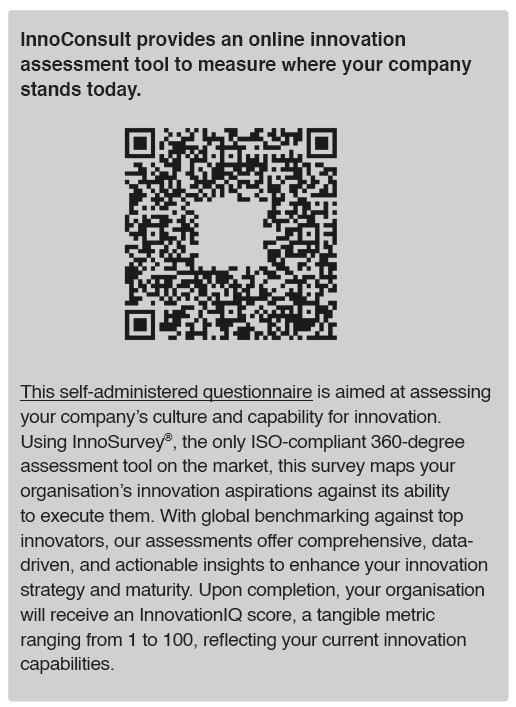HealthManagement, Volume 24 - Issue 3, 2024
The stories of Kodak, Blockbuster, and Nokia highlight the catastrophic consequences of failing to adapt to technological changes and market shifts. They emphasize the need for businesses to remain agile, innovative, and forward-thinking to stay competitive in a rapidly evolving landscape.
Key Points
- Failure to Adapt: Kodak, Blockbuster, and Nokia all suffered from a critical inability to adapt to technological advancements and changing consumer preferences, leading to their decline.
- Missed Opportunities: Kodak's neglect of digital photography, Blockbuster's dismissal of Netflix's potential, and Nokia's late pivot to smartphones highlight how missed opportunities can have catastrophic consequences.
- Importance of Innovation: These companies' downfalls underscore the need for businesses to continuously innovate and disrupt their models to stay competitive in a rapidly evolving market.
- Visionary Leadership: Strategic foresight and visionary leadership are important, as companies need to anticipate market dynamics and embrace change proactively to maintain their edge.
- Agility in Strategy: Modern businesses must prioritise agility in their strategic planning, staying attuned to market trends and ready to pivot quickly in response to new technological advancements and consumer behaviour shifts.
Throughout corporate history, there have been numerous decisions that, in retrospect, have been deeply regrettable. These decisions often serve as cautionary tales, illustrating the complex dynamics of business strategy, market forecasting, and the unpredictable nature of innovation. Notable examples include Kodak, Blockbuster, and Nokia, among others, which highlight how critical failures to adapt to changes in technology and consumer behaviour can lead to dramatic downfalls. Kodak's reluctance to embrace digital photography, Blockbuster's dismissal of the streaming revolution, and Nokia's inability to compete with the smartphone surge are prime instances of how technological advancements and shifting consumer preferences can outpace established business models. These examples underscore the necessity for companies to remain agile, continuously innovate, and keenly attuned to market trends to sustain their competitive edge and avoid similar fates.
Kodak: A Cautionary Tale of Complacency and Missed Innovation
Kodak is perhaps the quintessential example of a regrettable business decision. Despite inventing the first digital camera in 1975, Kodak chose not to pursue the technology, fearing it would cannibalise its lucrative film business. This decision was rooted in the belief that the digital market would take decades to mature, underestimating the rapid pace of technological adoption. As a result, Kodak continued to focus on its traditional film products, while competitors like Canon and Sony embraced digital photography. By the time Kodak pivoted to digital, it was too late; the company filed for bankruptcy in 2012.
Kodak’s downfall underscores the dangers of complacency and the importance of embracing innovation even at the expense of existing revenue streams. This decision reflects a critical failure to understand and adapt to the shifting technological landscape and consumer behaviour. Kodak's reluctance to disrupt its own profitable film business blinded It to the imminent digital revolution. The company's leadership failed to recognise that innovation often requires cannibalising current successes to pave the way for future growth.
Blockbuster: Ignoring Market Shifts and Technological Innovation
Similarly, Blockbuster’s decline is a stark reminder of the perils of failing to anticipate market shifts. At its peak, Blockbuster was a dominant force in video rental, with thousands of stores worldwide. However, in 2000, the company famously declined an opportunity to purchase Netflix for a mere $50 million. Blockbuster's leadership dismissed the potential of Netflix’s mail-order and, later, streaming model, confident that their retail stores would remain the primary distribution method for home entertainment. This misjudgment proved catastrophic. As consumers increasingly favoured the convenience of digital streaming, Blockbuster’s business model quickly became obsolete.
Netflix, meanwhile, has grown into a global entertainment powerhouse, valued in the billions. Blockbuster’s fate illustrates the critical importance of adaptability and the willingness to invest in emerging technologies. The reluctance to shift from a brick-and-mortar business model to a digital-first strategy highlighted Blockbuster's inability to foresee the rapid evolution in consumer preferences. While Netflix embraced the burgeoning internet age, continuously evolving, from DVDs by mail to streaming, then producing original content, Blockbuster clung to its outdated model, hoping to ride out the changes.
This scenario underscores the necessity for businesses to stay ahead of technological trends and consumer behaviour shifts. Companies must foster a culture of innovation and be willing to pivot when necessary. Blockbuster’s downfall is a cautionary tale about the risks of complacency and the importance of visionary leadership. It demonstrates that success in the past does not guarantee future relevance, and in the fast-paced world of technology, only those who embrace change can thrive.
Nokia: The Importance of Strategic Foresight and Adaptability
Nokia’s fall from grace offers another poignant lesson in the importance of strategic foresight. In the early 2000s, Nokia was the world’s leading mobile phone manufacturer, renowned for its durable and user-friendly devices. However, the company was slow to recognise the potential of smartphones, particularly the shift towards software-driven user experiences epitomised by Apple’s iPhone. Nokia’s adherence to its Symbian operating system, and its late and flawed transition to the Windows Phone platform, left it lagging behind competitors. By the time Nokia attempted to recover, its market share had eroded significantly. In 2013, it sold its mobile phone business to Microsoft.
Nokia’s story highlights the necessity for businesses to stay ahead of technological trends and remain agile in their strategic planning. The company's failure to anticipate and adapt to the smartphone revolution marked its downfall. While rivals like Apple and Samsung focused on integrating cutting-edge software and user experiences, Nokia remained entrenched in its hardware-centric approach. This strategic myopia prevented it from innovating and responding effectively to the rapid changes in the mobile industry.
Moreover, Nokia's delayed pivot to the Windows Phone platform, rather than embracing the more popular Android system, further isolated it in the competitive landscape. The decision to partner with Microsoft came too late and was insufficient to regain its lost ground. This misstep emphasises the critical role of timely decision-making and the willingness to adopt new technologies and platforms to meet evolving consumer demands.
Nokia’s decline shows that industry leaders must not only maintain but also anticipate market dynamics. Continual innovation, adaptability, and a forward-thinking mindset are essential for sustaining leadership and preventing obsolescence in a fast-evolving technological environment.

Conclusion
These examples—Kodak, Blockbuster, and Nokia—underscore a common theme: the failure to adapt to changing environments and recognise new technologies' potential can lead to catastrophic outcomes. These companies were once industry leaders, yet their reluctance or inability to pivot in the face of innovation resulted in their decline.
For modern businesses, these cautionary tales emphasise the importance of remaining vigilant, embracing change, and fostering a culture that prioritises long-term vision over short-term gains. In an era defined by rapid technological advancement, the ability to anticipate and adapt to change is not just advantageous; it is essential for survival. Companies must invest in innovation, stay attuned to market trends, and be willing to disrupt their own models to stay relevant. The stories of Kodak, Blockbuster, and Nokia serve as potent reminders that even the most dominant market players can fall if they fail to evolve. Embracing a forward-thinking mindset and being agile in strategic planning are crucial to thriving in today’s fast-paced, technology-driven world.
Conflict of Interest
None




